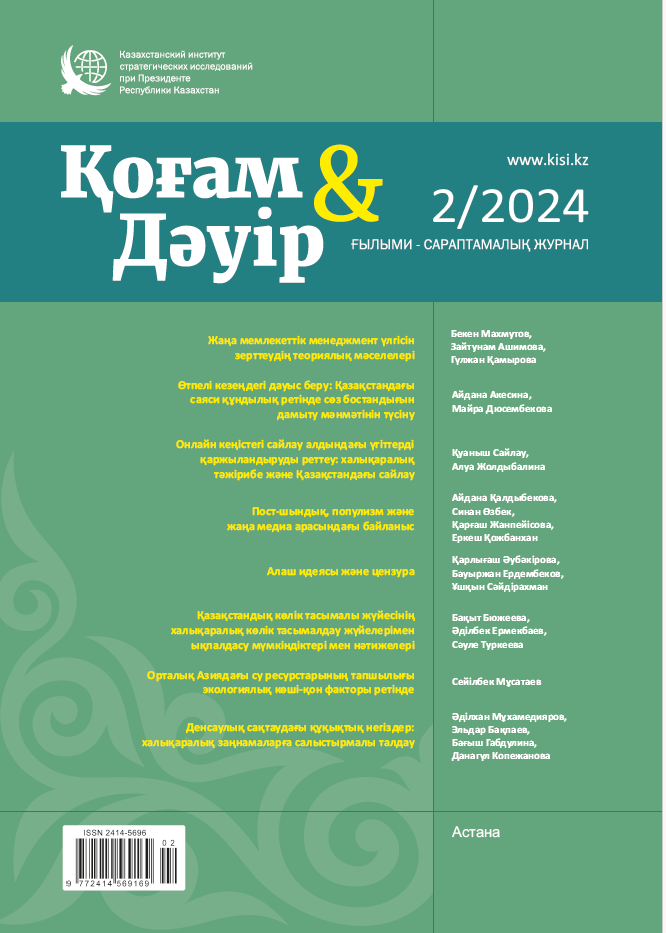Abstract
The purpose of this research is to comprehensively understand the transitional processes in post-communist nations and their influence on the present state of freedom of expression in Kazakhstan.
Freedom of expression is not just a legal right; it is a fundamental political value that serves as the bedrock of any thriving democracy. In the context of Kazakhstan's post-communist journey towards democracy, understanding the nuanced dynamics of development of civil society its freedom of expression is crucial. This article explores how freedom of expression acts as a pivotal political value, shaping the trajectory of Kazakhstan's democratic aspirations.
The study addresses several key questions, including the fundamental value of freedom of expression globally, historical, and political background and current situation with freedom of expression in Kazakhstan. By investigating these elements, the study aims to fill a gap in the current literature and contribute to a better understanding of the context in which


